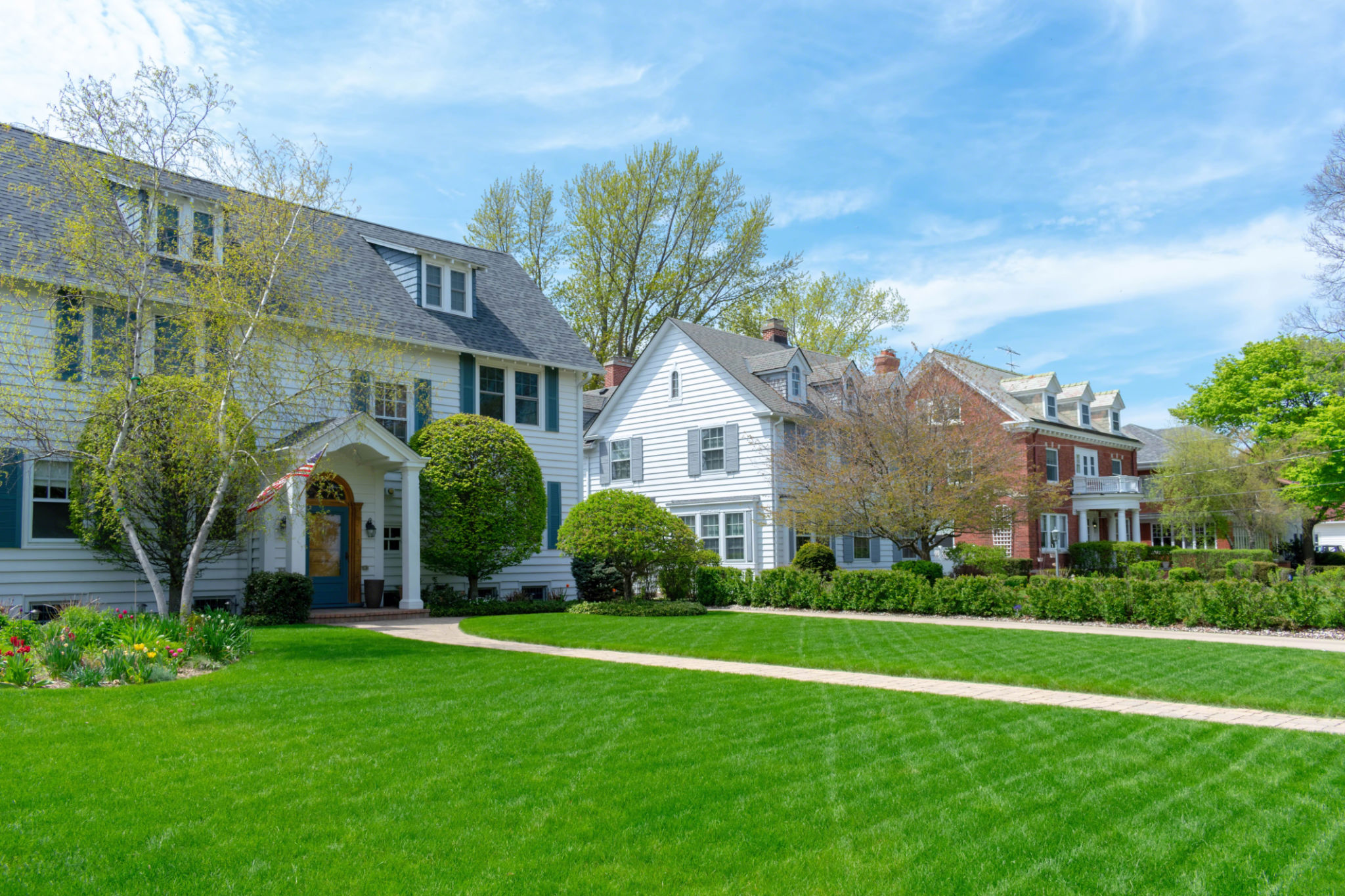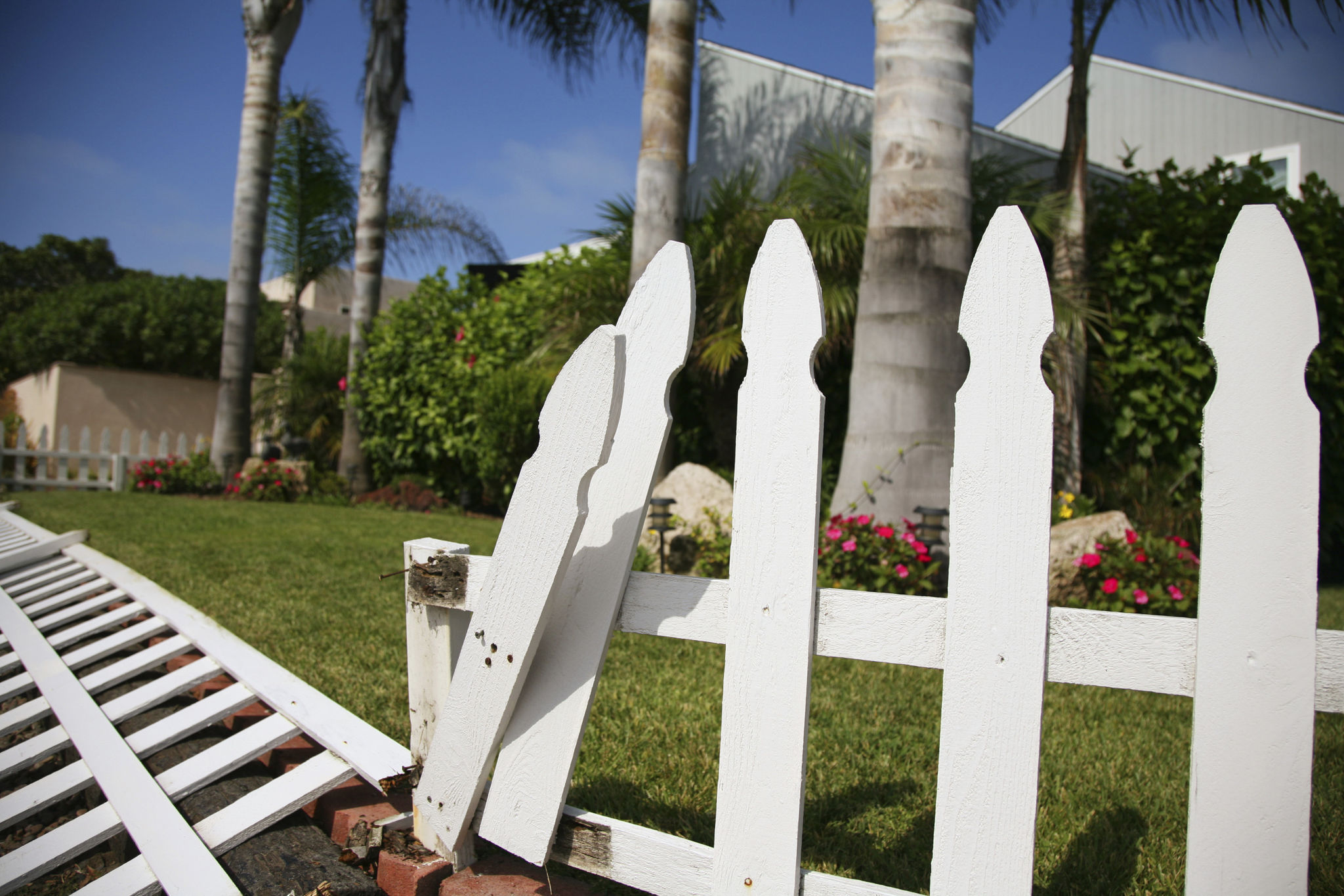How to Choose the Perfect Fence for You and Your Property
Choosing the right fence goes beyond aesthetics—it’s about meeting your property’s unique needs. Whether it’s privacy, security, curb appeal, or a combination, this guide walks you through the critical decisions involved, exploring everything from legal considerations to materials, maintenance, and budgeting. By the end, you’ll have all the knowledge you need to make an informed choice.
Defining Your Purpose:
What Do You Need from Your Fence?

Before choosing a fence, consider your primary goal. Each purpose suggests a different type of fence:
● Privacy - If privacy is your goal, opt for tall fences with solid panels that block visibility. Materials like wood or vinyl offer great options.
● Security - Security-focused fences need to be robust and potentially topped with deterrents like pointed iron. Metal options, like steel or iron, are ideal.
● Aesthetics - Decorative fences enhance the look of your property. Materials like wrought iron, vinyl, or stained wood can add elegance.
● Containment (Children/Pets) - Safety-focused fences should minimize gaps and be of adequate height for containment. Wood, vinyl, and chain-link are common.
Getty Images Keywords: "privacy fence," "security fence," "decorative fence," "pet-friendly fence"
Types of Fencing Materials (with Pros and Cons)

Each material has its own benefits and drawbacks, affecting maintenance, longevity, and cost:
● Wood: Offers versatility and natural beauty; however, it requires staining or sealing every few years to prevent rot.
○ Pros: Affordable, customizable, and aesthetically pleasing.
○ Cons: Requires regular maintenance and can deteriorate over time.
● Vinyl: Low-maintenance and durable, with a range of styles.
○ Pros: Weather-resistant, low-maintenance, available in many colors.
○ Cons: Higher initial cost, may crack under extreme temperatures.
● Metal (Wrought Iron, Steel, Aluminum): Ideal for security and ornamental appeal.
○ Pros: Durable, highly secure, customizable with decorative designs.
○ Cons: Prone to rust if not properly treated, higher cost.
● Chain-Link: Practical and budget-friendly, but offers minimal privacy.
○ Pros: Affordable, durable, and low-maintenance.
○ Cons: Not suitable for privacy; may not add significant curb appeal.
Local Regulations and Property Boundaries

Understanding local regulations and property lines is crucial for avoiding legal issues:
● Permits and HOA Rules: Some cities or homeowner associations (HOAs) require permits, have height restrictions, or even material guidelines for fencing.
● Confirm Property Lines: Hire a surveyor if needed. Misplaced fences can lead to disputes and fines.
● Zoning Requirements: In some areas, fences may need to be set back from sidewalks or streets.
Considering Fence Height and Style

Choosing the height and style of your fence is important for balancing privacy, security, and aesthetic goals:
● Height: Standard fence heights range from 4 to 6 feet. For privacy, aim for at least 6 feet.
● Style: Fence styles vary widely—picket fences create an inviting look, while solid panel designs offer privacy.
● Combining Heights and Styles: Consider blending styles, like combining a shorter decorative fence with taller privacy sections, especially for properties with varying needs.
Getty Images Keywords: "fence height," "decorative fence," "privacy fence style"
Climate and Environmental Factors

Your region’s climate impacts the longevity and maintenance of your fence material:
● Wood in Humid Climates: Opt for pressure-treated or rot-resistant wood like cedar. Regular sealing is recommended.
● Extreme Heat/Cold: Vinyl and certain metals can crack or warp with temperature changes; choosing weather-resistant options like powder-coated aluminum can increase longevity.
● Windy Areas: Consider fence designs that allow wind to pass through, like lattice or spaced picket fences, to reduce stress on the structure.
Getty Images Keywords: "weather-resistant fence," "fence for cold climates," "wind-resistant fence"
Budgeting Your Fence Project

Understanding the costs involved helps in planning a project that meets your needs without breaking the bank:
● Material Costs: Wood and chain-link are generally more affordable, whereas vinyl and wrought iron are on the pricier end.
● Installation Costs: Professional installation often represents a significant part of the cost but ensures longevity and quality.
● Maintenance Costs: While vinyl and metal fences have low maintenance, wood fences may require regular sealing, staining, or painting.
For a detailed breakdown of fence installation costs and factors that influence pricing, check out our blog post on Fence Installation Costs—What You Need to Know.
Professional Installation vs. DIY Installation
When considering professional installation, weigh the benefits and potential drawbacks:
● Advantages of Professional Installation: Professionals bring expertise, proper tools, and knowledge of local regulations, ensuring a well-built, long-lasting fence.
● DIY Considerations: DIY can save costs, but requires proper tools and knowledge of installation techniques. A mistake can lead to costly repairs or a shorter fence lifespan.
Maintenance Tips for Longevity

Different materials require unique maintenance routines to maximize their lifespan:
● Wood Fences: Apply a weather-resistant sealant every 2-3 years. Inspect for pests, rot, and damage regularly.
● Vinyl Fences: Cleaning with water and mild soap keeps them looking new; avoid abrasive materials that could scratch.
● Metal Fences: Periodic rust inspection and painting or coating can prevent corrosion.
Frequently Asked Questions (FAQs)
● Q1: How long will my fence last?
Fences generally last between 10-30 years, depending on the material, installation quality, and maintenance.
● Q2: Which fence offers the best noise reduction?
Solid wood or vinyl fences with height and density are best for noise reduction, especially in urban areas.
● Q3: Is it possible to mix fence types on one property?
Yes, mixing fence types can optimize privacy, security, and aesthetics; consult with a professional to ensure seamless blending.
Conclusion
Atlanta Greener Landscape—Your Partner in Fencing Solutions
Finding the perfect fence is about aligning your needs with quality materials and expert installation. At Atlanta Greener Landscape, we offer tailored fencing solutions that add value, security, and beauty to your property. Whether you’re interested in a classic wood fence or a modern vinyl design, our experts ensure a hassle-free experience from start to finish.
Ready to bring your fencing vision to life? Contact Atlanta Greener Landscape today for a free consultation!
